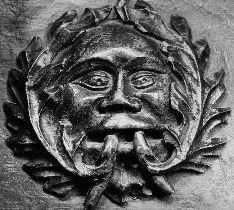
Aeon, a new online magazine focusing on ethics and aesthetics, launches this week. Managing Editor Ed Lake (an old friend, I should disclose) gets it off to superb start with an article about “Uncivilisation”, a festival that took place this summer in England’s South Downs. It sounds like a sort of Glastonbury for apocalyptic hermits:
The men wore beards and medicine-man adornments — animal-tooth pendants, feathers behind the ear. The women sported Peter Pan tunics and yogically extended backs. Everyone was, as my mother would say, well-spoken. An older chap in a fishing hat announced that he had run into a pair of mourners. They were looking for a fresh grave in the wood; a boy had been buried there the week before. ‘It was like Hamlet,’ he said sagely. ‘You know. Death.’ Ah, we said.
So what’s this all about?
The festival is an outgrowth of an inscrutable cultural programme begun in 2009 by two journalists, Paul Kingsnorth and Dougald Hine. Together they wrote a pamphlet called Uncivilisation: The Dark Mountain Manifesto. ‘We are at a time of social, economic and ecological unravelling,’ they declared. ‘All around us are signs that our whole way of living is already passing into history.’ The environmental movement had failed: the ship of society would never turn around in time. All that was left to do was prepare for the crash, and perhaps learn to look on the bright side. ‘The end of the world as we know it is not the end of the world full stop. Together, we will find the hope beyond hope, the paths which lead to the unknown world ahead of us.’
Party on! Ed admits to having been “on his guard”:
It didn’t help that the festival offered lessons in using the scythe, or that the trees around the camp were hung with animal bones, or that the photographer and I were waved into our turning by a woman dressed as a medieval mummer. I texted my wife: ‘Directed to the car park by someone literally in a Wicker Man mask.’ There were discussions of what it might mean to live as an ‘indigenous’ Briton. Racism and nationalism were firmly denounced, but the sinister undercurrents never really went away. At a talk about ‘how to act in an era of failed leadership’, a member of the arts group Mearcstapa wondered aloud whether he would be prepared to use violence to prevent greater violence.
So what was Ed, who is not at all a violent man, doing with these people?
It might be tempting to dismiss Uncivilisation with a shudder. But what I overlooked in my preparatory reading — perhaps because I wasn’t equipped to feel it myself — was the grief that underpins Dark Mountain. Most festival-goers appeared to have spent their working lives as professional green activists. They weren’t, as Kingsnorth observed to me later, ‘floaty poets’: they were doers, founders of eco-villages, picketers of building works. And as one man who used to develop organic recycling systems told me: ‘We failed.’ The value of Dark Mountain was, he said, psychological. It was a way to cope.
I still find this unsettling. I’ve heard a growing number of green activists say similar things in more, well, civilized contexts of late. And I’m just not that good with a scythe.



